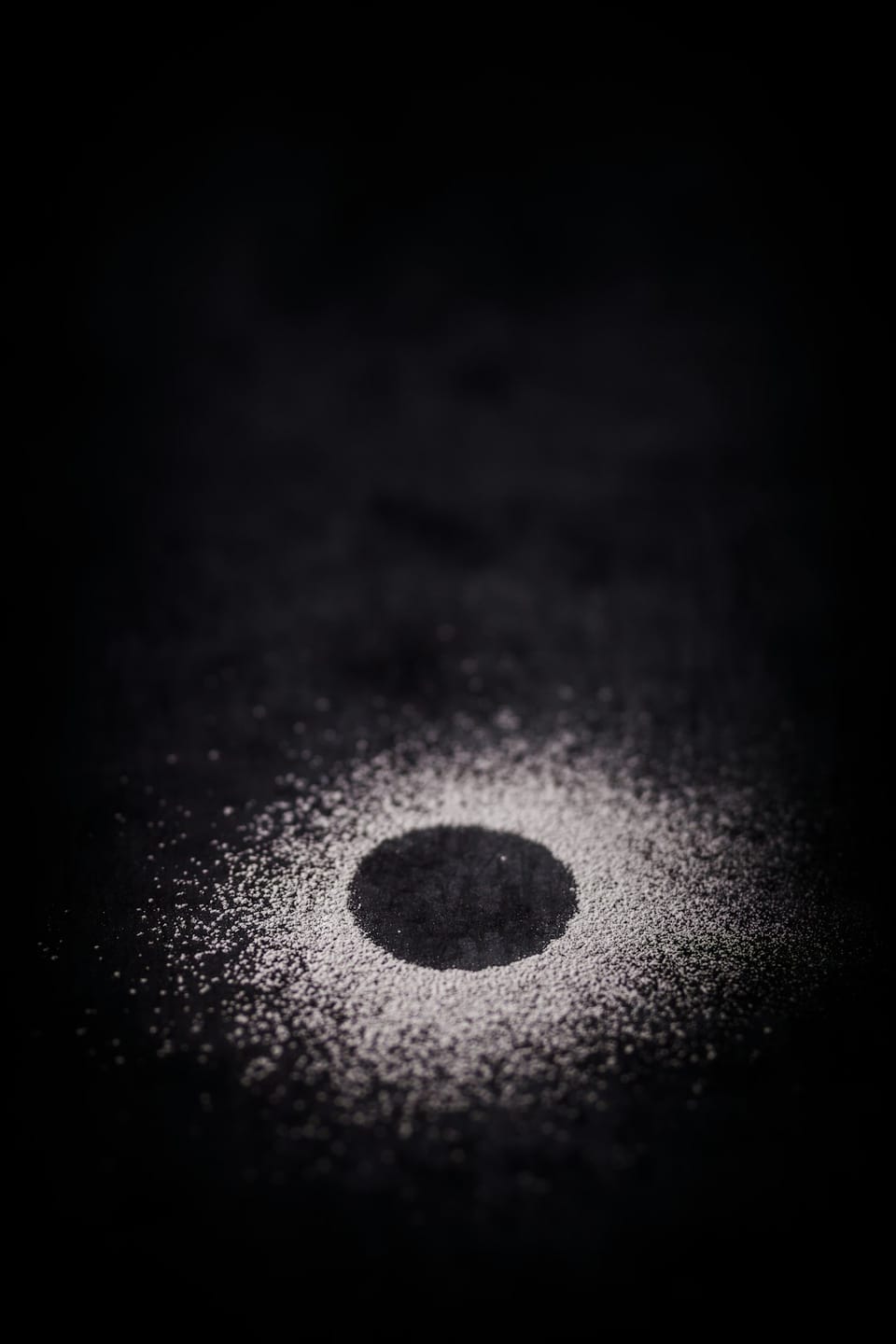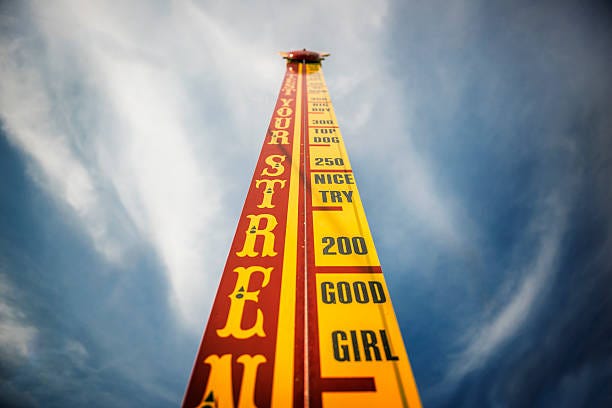Drugs are fucking everywhere (and we’re all addicted to comfort).

I want to be able to talk about drugs without fanfare, especially as it relates to revolutionary thought, intent, and action.

Listen to this newsletter here! would recommend listening to this one. I’m really spittin lol
Hello and welcome to threadings., the newsletter and podcast where I explore the stuff that keeps me held together at the seams. And sometimes those threads are drugs. I fucking love drugs. A lot of days, the thing keeping and collecting me (read: making sure I don’t bust my motherfucking stuffing) is a blissful amount weed rolled with my herbal blend (my personal herbal blend; no i am not giving up the recipe). I think you all think I’m like… responsible? And that’s fine. Sure. I am also here to be honest about that how close I am to losing my shit all the time— and further, honest about how ubiquitous drugs are in contemporary US-American society. Drugs are everywhere; they embed or broadcast themselves in every facet of day to day live. What that means for us as people with some of the most lucrative attention in the world that we are encouraged to never be sober?
Thesis one: drugs are everywhere.
Drug: A chemical substance, such as a narcotic or hallucinogen1, that affects the central nervous system, causing changes in behavior and often addiction. (The American Heritage® Dictionary of the English Language, 5th Edition.)
In my own words: Drugs are substances that change the way you see and interact with the world and create a reaction from your physical body, which leads to changes in behavior and can often be habit-forming in their use
Surviving in the constant cognitive dissonance of living in the imperial core leads the vast majority of us to medicate in some way. We, as the US-American populace, medicate through exercising our creature comforts. We grab cute coffee to sip and take a walk on soils that haven’t seen war from foreign hands since colonizers were the foreign hands inciting the wars. I take extra long showers and forget about the many places in the world where water is a privilege you get in monthly budgets. I feel badly about the binges and abuses I make my body endure (re: my workaholism, this is me specific) and move to eat healthier... failing to realize how odd it is that we have fresh strawberries and kiwi in the wintertime, packed in plastic and ready to eat. Any time a luxury like that is so cheap and so commonplace that we (US-Americans) don’t even notice, know that someone on the other side of the world quite literally, non-hyperbolically died for that shit2. We go through drive-throughs in our cars designed to maximize personal comforts and minimize thoughts about infrastructure, fuel, roadways, machine parts and their genocidal sources— we receive our instantaneous food and swipe our plastic money cards and our brains ping! ping ping ping! with delight. By design. We air-condition our homes and we filter our water and we nurse ourselves to sleep looking at the internet every night in the palm of our hands, of people just like us (except maybe a little bit more glimmery), living lives where we boast our comforts back and forth to one another over the ether and aspire to be less lonely… somehow… and we then rise to do it again. By design. By design. We are addicted to comfort; it’s everywhere; having a populace constantly under the influence of pleasures which undermine long-term thought and lasting resolution is absolutely and most definitely by design.
Contemporary US-American society runs on the assumption that you medicate yourself constantly. They’re banking on it, in fact. The reason large corporations like Starbucks and McDonald’s and Chik-Fil-A aren’t fuckin scared of our two week, two month, drop in the bucket boycotts is because they’re drugging us. And they know it. How many dealers you know scared about having loyal clientele? lmfao. They laugh as we organize and disassociate. We are addicted to instant food and sugar and caffeine as a populace, almost universally.
So then, what happens when a live-streamed genocide fucks up our ability to use the internet as a tool of escapism?
Thesis two: horror, anger, and outrage are also drugs.
Let’s re-examine what a drug is in my own words. Drugs are substances that change the way you see and interact with the world and (or because) they create a reaction from your physical body, which leads to changes in behavior and can often be habit-forming in their use.
Voluntarily or involuntarily administered, mass killings live-televised fill us with stimulus that overtakes our central nervous systems. And the effects shows up most in the spike of actions and protest, indicating a difference in the way we observe and perceive the world. We then expend a lot of energy protesting, calling for change, then peter out over time.
Now. This is where I ask you to consider me critically. I anticipate a knee-jerk reaction to the statements above and what they imply, which essentially claim that protests, as we currently understand them, are a drug that shortens our long-term ability to focus. And… I do mean that. I am not saying that I’m not for resistance— I’m saying that we keep thinking in the short term and the short-form for liberatory means (which is multiple generations across, in all directions). So long as we as a populace continue to be reactionary in our protesting, we’re never going to quite get a handle on gaining sovereignty for the long-haul. I really like this video from my mutual Logan Grendel. The following quotation is taken from the hyper-linked speech.
Marching is not going to stop this. Voting is not going to stop this. And while it is great to see people around the world expressing love and solidarity, we have to think smarter. And think for the longer game. The reason this country ALLOWS US to protest is because they know that it dissipates our energy.
Let’s think about protests from the viewpoint of drugs— specifically, stimulants. The stimulant in question here is intense, heightened emotion (horror, grief, outrage, profound sadness), which changes our way of viewing the world and inspires an intense reaction from (stimulates) our centralized nervous system. How does your body feel when interacting with the news from Palestine? I’m not telling you to look away. I’m telling you, hey, pay attention to that. The vehicle for said all-encompassing grief is social media, which is habit-forming and addictive in and of itself with how much visceral, violent stimulus you are exposed to (alongside the advertising). I’m certain many of us have had the experience where we are locked in a doom scroll, minutes or hours passing amorphously, unable to place ourselves in our bodies except for the feeling the screen is giving us (which is… remarkably similar to how shroom trips can feel when they’re going poorly, interestingly enough).
Protests, vocal outrage, calling representatives: those are tools that would compel representatives if they cared about what we, the US populace, think. Or if they had any real onus, incentive, or methods of accountability compelling them to do right by the people they claim to represent. No such incentive nor accountability exists at the moment. We do not have representatives, we have an oligarchy. The following sequence mimics kids on a sugar high. We take to the streets (again). We call to boycott Starbucks (again). We are set up to exhaust ourselves on the binging and releasing of the drug of horror cut with virality. We become exhausted. We call it a night. A new, generation-defining tragedy resurfaces (because none of the old ones went away, they just fester).
I repeat: United States contemporary life is saturated with stimulants and depressants that hijack our ability to focus on the long-term. We only know how to act on desires which root, bloom, and materialize instantaneously. At once, these habits distract us from the harrowing long-term effects on our bodies (individual, physical, collective, metaphysical bodies). So we expel all this drug-induced grief with protests that batter our bodies, exhaust us, and dishearten us— because street protests ultimately do not change the legislation or the funding that allows for genocide with impunity.
Thesis three: this is not a call for abstinence. It’s a call for informed, responsible drug usage.
i like drugs. I think we should use drugs. I think that the ways that drugs change my world view having interacted with them have been a net positive in my life. So including the outrage machines, including protest, including feeling what that broken-glass grief does when it moves through my body— I’m not saying that you shouldn’t protest! Please protest! Just know that it is a drug. And the sneakiest drugs, the hardest ones to kick, are the drugs you did not realize were substances in the first place. I feel this way about teens signing onto nicotine addictions. I feel this way about my soul-tie with Oreos when I was an adolescent. Identifying my daily/habitual drugs is one of the reasons I’m fasting, which has this nasty knack for spotlighting my addictions and writing them out in an itemized list. It makes boycotts easier, that’s for sure. Who has the capacity to give two fucks about Starbucks when I haven’t had rice all day? I’m Sierra Leonean. Nobody is playing about rice.
It is imperative that we know what our addictions are so that we know where we’re most likely to be exploited. I am a US-American and thus it’s important that I know what I am addicted to and why. I need to know where I am susceptible to being exploited so that I avoid falling victim to medicating instead of seeing the world clearly. Every United States citizen is addicted to pretending things are better than they are. The drug of denial is the only way we can go about our day. I just spent too much money on vegan ice cream (that doesn’t even taste good) because come sundown all I want to do is eat until I pass out on the couch. What did I just learn about myself? What does grief compel me to do and to buy? How do I stay vigilant of those desires so that they’re not exploiting me into supporting genocide with my dollars? I am also seeing how much I am addicted to being helpful. How much I overload myself with work and trudge forward at maximum capacity all the time, out of…? Habit? Obligation?
a smaller, braver voice in the back of my head: don’t beat yourself up about the sugar, ismatu. Morality is useless in the face of addiction. What we want you to notice is the ringing satisfaction you get after completing a to-do list, ismatu. At receiving the applause of being useful, ismatu. Like the bell at the end of your mallet swing, lighting up the whole sky, alerting everyone of how hard you work. Your brain’s reward system has been hijacked to value productivity above all things. Why are you working yourself this hard? Isn’t this why you left private practice? How do you slow down? How do you come down?

The hardest part of revolutionary thought, intent, and action is the fact that struggle is protracted.
There is rarely, if ever, any instant gratification to liberation. I will be studying and honing and acting and repeating for the rest of my life. The ends are the means because the work never actually ends. The first battle is in getting the foot of someone else off your fucking neck, and then the work of rehabilitation begins. Once they’re out. Once the enemy is faded away. Once we gain our wildest dreams that capitalism and the nation state and their slow and fast genocides are technologies of the past, we will still be dreaming. We have people to rehabilitate. Lands to rematriate. Soil to regenerate. The last couple hundred years of exploitation and theft cost us our worlds in millennia. There is no instant gratification to liberation because true liberation, where the land and seas and the people they birth are free free free— there is no arrival point. There is no cap on the dreaming. Freedom is a dream that goes forever. Like summer. Like the horizon. There is no instant gratification of a free world for my children(’s children’s children).
Drugs are instantaneous. They teach your brain and body to crave and be obsessed with what is directly in front of you. Okay? We have to be cognizant. We have to be careful. And we have to be intentional about our drug use.
I am now going to talk explicitly about ocaine-cay so. Paywall. But I leave you all with the consideration that there is no part of modernity that is not manufactured, including the outrage we are allowed to feel. What happens when we witness the unspeakable and our speaking does nothing? Has it occurred to you that we are being drugged with that outrage?
PS. There’s an entirely separate essay here on the crack cocaine epidemic being an intentional genocide, and how we don’t talk about it? like it… wasn’t the US killing people under their constituency because they were Black and had the nerve to maintain growing militancy. Then they employ the same genocidal land-grabbing tactics, just under the name “gentrification.” New York City has radicalized me something fierce. Anyways. xo
(if you aren’t continuing, I hope the work of your day passes through your hands with ease. much love.)
[editor’s note: the paywall has been removed in the great radicalization of 2023. Please do read The Case Against Sponsorships.

but not limited to ↩
cc: The Banana Wars. A great, short explainer video from Cory Bradford and this masterpiece What’s Good English. ↩

Member discussion